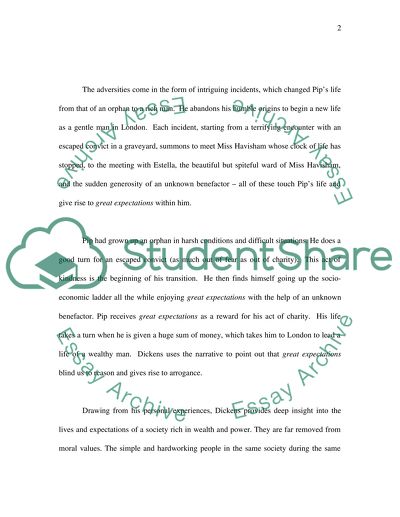Cite this document
(How Does Dickens Use Narrative to Explore the Idea of Great Expectatio Assignment, n.d.)
How Does Dickens Use Narrative to Explore the Idea of Great Expectatio Assignment. Retrieved from https://studentshare.org/literature/1535292-the-world-lay-spread-before-me-voli-chapter-xix-how-does-dickens-use-narrative-to-explore-the-idea-of-great-expectations-in-his-novel
How Does Dickens Use Narrative to Explore the Idea of Great Expectatio Assignment. Retrieved from https://studentshare.org/literature/1535292-the-world-lay-spread-before-me-voli-chapter-xix-how-does-dickens-use-narrative-to-explore-the-idea-of-great-expectations-in-his-novel
(How Does Dickens Use Narrative to Explore the Idea of Great Expectatio Assignment)
How Does Dickens Use Narrative to Explore the Idea of Great Expectatio Assignment. https://studentshare.org/literature/1535292-the-world-lay-spread-before-me-voli-chapter-xix-how-does-dickens-use-narrative-to-explore-the-idea-of-great-expectations-in-his-novel.
How Does Dickens Use Narrative to Explore the Idea of Great Expectatio Assignment. https://studentshare.org/literature/1535292-the-world-lay-spread-before-me-voli-chapter-xix-how-does-dickens-use-narrative-to-explore-the-idea-of-great-expectations-in-his-novel.
“How Does Dickens Use Narrative to Explore the Idea of Great Expectatio Assignment”. https://studentshare.org/literature/1535292-the-world-lay-spread-before-me-voli-chapter-xix-how-does-dickens-use-narrative-to-explore-the-idea-of-great-expectations-in-his-novel.


